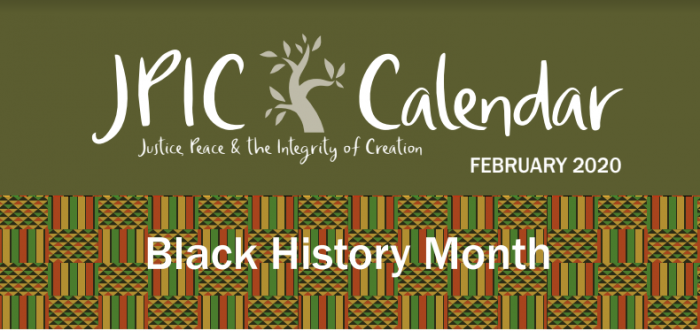Each of us shares responsibility for the protection and care of the most vulnerable, especially our children. Globally, children find themselves in places of increasing risk, facing the challenges of migration, poverty, violence and unequal access to educational opportunities.
Printable JPIC Calendars
Supreme Court Justice Ruth Bader Ginsburg writes, “When I'm sometimes asked when will there be enough [women on the Supreme Court] and I say, 'When there are nine,' people are shocked. But there'd been nine men, and nobody's ever raised a question about that.” (Georgetown, 2016). The JPIC Calendar for March invites you to explore the lives and initiatives of those who made it possible for women to sit on Supreme Court today and who continue to fight to overcome the systematic sexism that still exists in Canada and the United States.
Harriet Tubman reminds us “Every great dream begins with a dreamer. Always remember, you have within you the strength, the patience, and the passion to reach for the stars to change the world.”
With the attached JPIC Calendar for February and for Black History Month, we invite you to explore the lives of those who found the strength, patience and passion to change the world– yesterday and today.
National Slavery and Human Trafficking Prevention Month
“The scale of human trafficking is atrocious...We have to raise our voices for them. That means confronting the social and economic conditions that abet this crime..” – former United Nations Secretary General Ban Ki-Moon
Universal Human Rights Month
“Where, after all, do universal human rights begin? In small places, close to home — so close and so small that they cannot be seen on any maps of the world. [...] Unless these rights have meaning there, they have little meaning anywhere. Without concerted citizen action to uphold them close to home, we shall look in vain for progress in the larger world.” – Eleanor Roosevelt
Celebrate Native American Heritage Month
"As family of the Sacred Heart, we are called to respond “as One Body,” drawing from our charism and mission as educators. This means growing in a shared vision that allows us to understand the complexity of the political, economic, and social systems that confront us; increasing awareness of how we ourselves may be complicit in injustice; and deepening practices rooted in an integral ecology." (Artisans of Hope 1)






